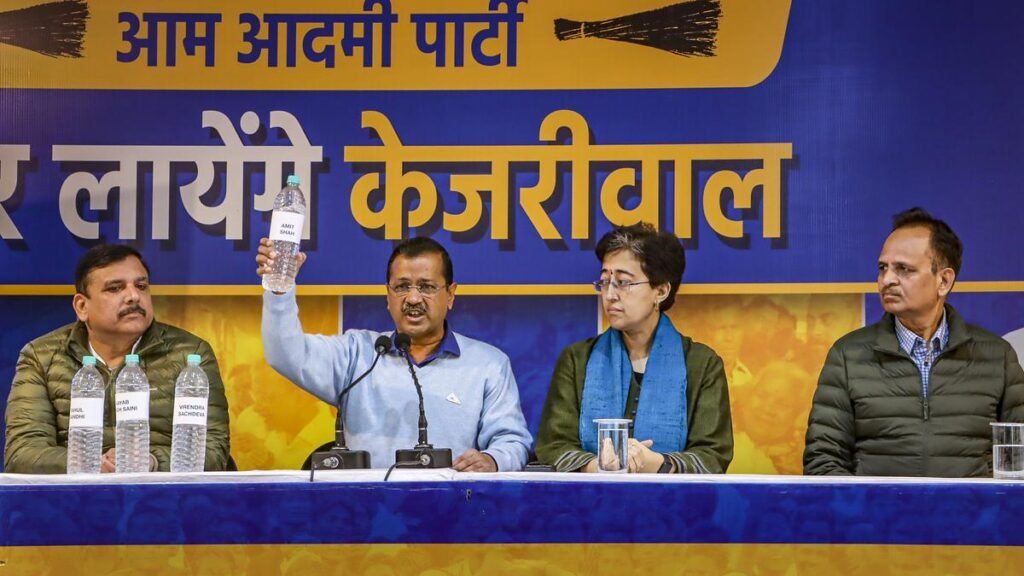The Election Commission of India (ECI) has found itself at the center of controversy just a day before the crucial Delhi elections. In a strong rebuttal, the poll body has responded to accusations and alleged pressure tactics used by political parties to undermine its authority. With tensions running high, let’s break down the situation and what it means for the electoral process.
Election Commission Stands Firm Amid Political Allegations
On Tuesday, the Election Commission of India took to X (formerly Twitter) to respond to what it termed as “repeated pressure tactics” aimed at discrediting its neutrality and efficiency. Despite facing criticism, the ECI asserted that it remains committed to upholding fair elections, absorbing these allegations with “sagacity and stoicism.”
Ensuring a Robust Electoral Framework
The ECI emphasized that any concerns raised before the elections were thoroughly investigated and addressed by a team of over 1.5 lakh officials. These officials, functioning within a well-established legal framework, ensure a transparent and unbiased electoral process. This response comes in the wake of allegations from AAP (Aam Aadmi Party) leaders questioning the commission’s independence.
AAP’s Accusations Against the Election Commission
The controversy escalated after Delhi Chief Minister Atishi and AAP leader Arvind Kejriwal accused the ECI of ignoring violations of the Model Code of Conduct (MCC). Atishi pointed fingers at BJP MP Ramesh Bidhuri’s family, alleging that they openly disregarded election norms in Kalkaji, her constituency.
Allegations of Bias and Selective Action
Atishi took to social media, claiming she had filed a complaint against Bidhuri’s family for violating election rules. However, instead of action against them, she was the one facing charges. “The Election Commission of India is unbelievable. BJP leaders blatantly violate the MCC, and yet I am the one being booked,” she stated in her post.
Ramesh Bidhuri’s Controversial Past
BJP’s Ramesh Bidhuri is no stranger to controversy. In 2023, he faced backlash for using communal slurs against Bahujan Samaj Party MP Danish Ali. More recently, he made personal attacks against Atishi, leading to emotional reactions from the AAP camp. Bidhuri also stirred controversy with his derogatory remarks about Congress leader Priyanka Gandhi Vadra.
Arvind Kejriwal’s Strong Remarks Against the ECI
Delhi CM Arvind Kejriwal did not hold back, accusing the Election Commission of India and Delhi Police of supporting BJP workers while targeting AAP members. According to Kejriwal, BJP workers were distributing liquor and money in exchange for votes, with no action taken against them.
Claims of Political Favoritism in the EC
Kejriwal went a step further, alleging that the Chief Election Commissioner, Rajiv Kumar, had promise a post-retirement position by the BJP. “Rajiv Kumar is set to retire this month. What has the BJP offered him? A governorship, presidency? I urge him not to destroy democracy,” he claimed.
ECI’s Response to Kejriwal’s Yamuna Allegation
The feud between AAP and the ECI also includes a dispute over Kejriwal’s claims about contaminated Yamuna water being supplied to Delhi. The ECI has issued two notices demanding proof of his allegations,
warning that failure to provide evidence could lead to legal consequences.
Delhi Elections: What’s at Stake?
As Delhi gears up for the polls, the political atmosphere is charge with accusations, counter-accusations, and heightene tensions. The election is being see as a litmus test for AAP,
which is eyeing a historic third consecutive term.
Read More: CBSE Board Exams 2025: Key Details and Preparation Tips
Conclusion
The war of words between AAP and the Election Commission of India underscores the critical importance of free and fair elections. While political parties engage in aggressive campaigning,
the ECI insists on maintaining neutrality and ensuring a level playing field. With the elections just around the corner, all eyes are on the results, which will determine the future political landscape of Delhi.








